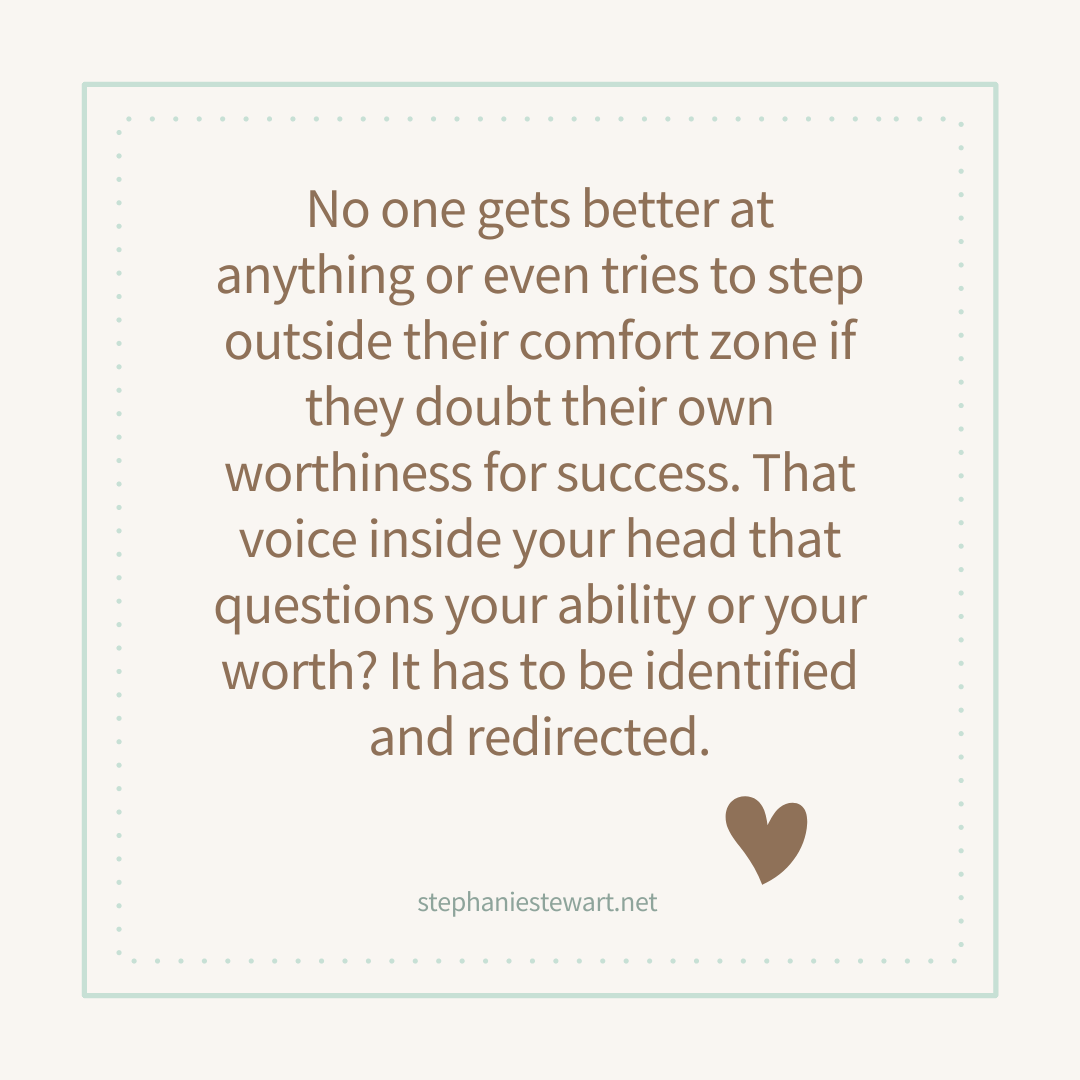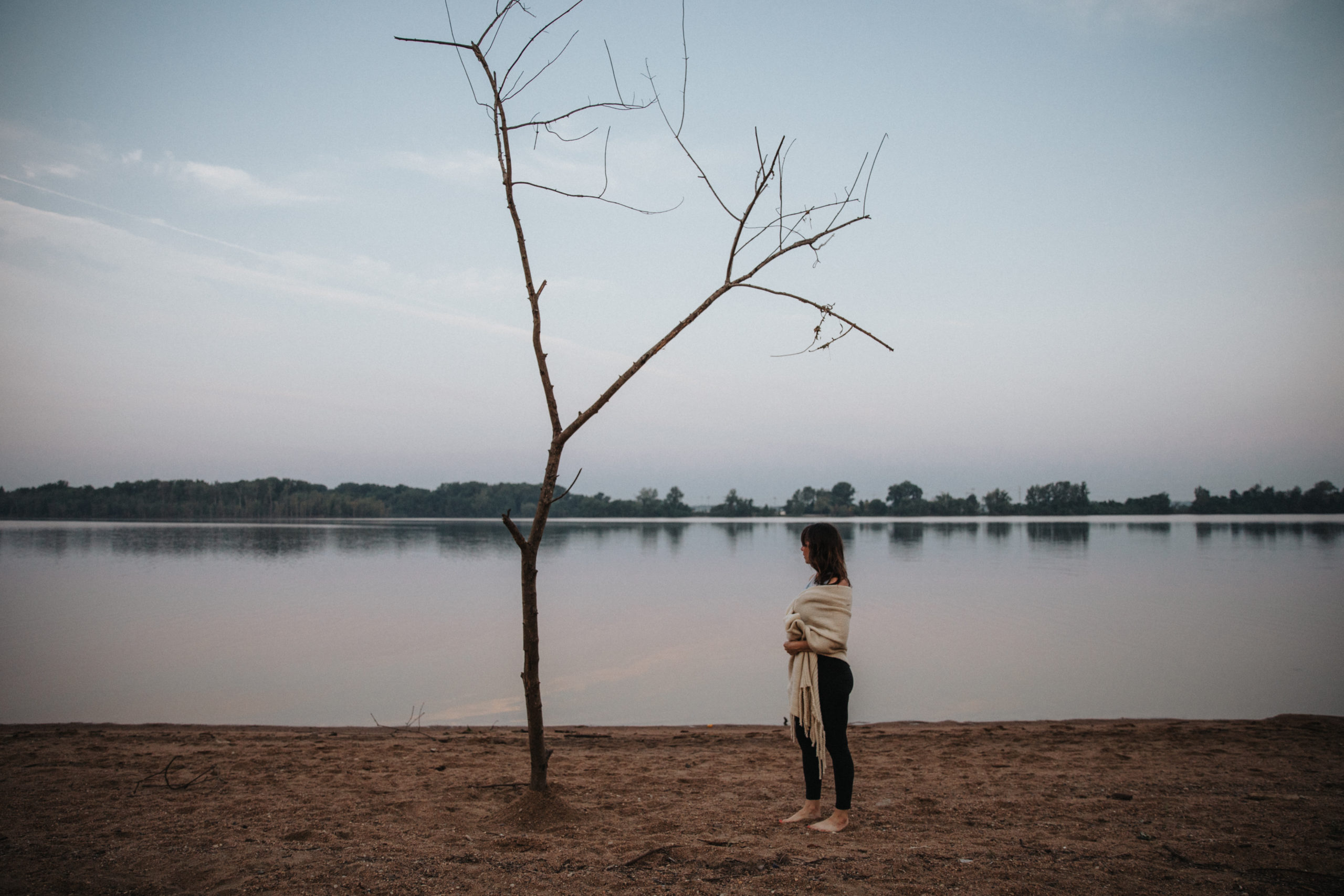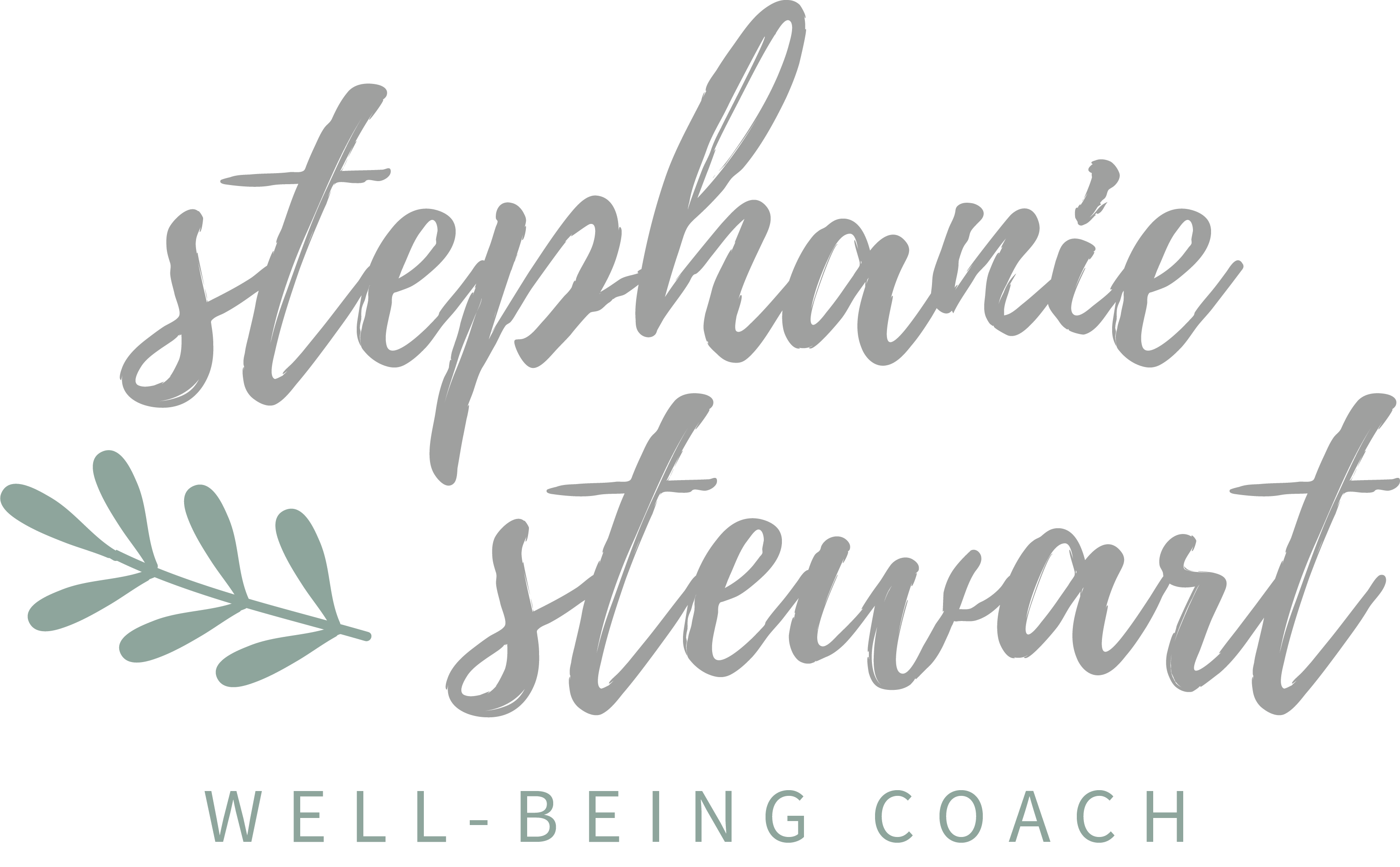
On Being In Practice
I’ve been talking a lot with clients lately on what it means to be “in practice”. There seems to be a disconnect in what we tell ourselves about practicing something that implies that at some point we become the expert. And that in this expert state we no longer need to practice. This isn’t true. While we get better and may even achieve “expert status”, we still have to keep up with our skills. After all, if we don’t use them, we lose them.
Most of us accept this truth when it comes to learning a new skill like playing an instrument. Obviously we need to study and practice in order to learn. And once we learn to play the instrument we need to continue playing it from time to time in order to maintain our skill. If we want to continue to get better, we need to practice even more. Why then is it so hard to accept this about things we do to improve our overall well-being? We make excuses like I’m not good at this or I don’t have time or I tried that once and it didn’t work or it made me uncomfortable. This is something worth exploring if we want to understand ourselves and effect lasting change.
Let go of perfection
The judgement and criticism that we subject ourselves to is the first thing we need to address. No one gets better at anything or even tries to step outside their comfort zone if they they doubt their own worthiness for success. That voice inside your head that questions your ability or your worth? It has to be identified and redirected. In a shame cycle, you aren’t very useful to yourself. Take the instrument metaphor. If you expect, right out of the gate, to be an excellent guitar player and this is the first time you are holding a guitar, you will be very disappointed. You might even give up before you really get started. We have to meet ourselves where we are and give grace to our inadequacies and imperfections. This comes from awareness and acceptance.
When I am talking with my clients about being in practice with mediation, yoga, getting into their body or eating healthy food, I am always encouraging them to develop a practice even when they are feeling good. I do this because these things aren’t bandaids only to be used for acute care when life is turned upside down or we are feeling anxious. By practicing, we are engaging in prevention and cultivating a lifestyle. We also increase our chances of reaching for a healthy tool rather than spiraling when we are overcome by stress, anxiety, or depression.
Pay attention
The excuse of time is a big one. Have you ever made a log of everything you do in one day? From the time you wake up to the time you fall asleep, there are so many hours. How are you spending them? How you spend your time is what you are practicing. And what you practice, you become good at. For example, if you are spending your time scrolling through social media, you will be really good at that. If you are spending your time cleaning and organizing your home, you will have a very clean and organized home. Heres the truth – if you really want to do something, you will find the time. It is about prioritizing and commitment.
Sometimes it is hard to commit and prioritize the things that we know will benefit ourselves first and foremost. What I mean by that is we are often more willing to do for others what we don’t do for ourselves. This is something that we have been conditioned to do by our upbringing and societal pressure, but it doesn’t make it right or healthy. When you prioritize yourself you give others permission to do the same. You also learn to look within yourself for what you need instead of relying on outside sources. In short, you learn to fill your own cup. When your cup is full you have more to give.
Yeah, I did that once
So, you tried to meditate once before and had trouble sitting still? Or you went to a yoga class and felt judged by the lady next to you and you never went back? We have all had experiences like these that left us feeling less than or we didn’t get the outcome we wanted. There’s that pesky perfectionism again. Just because you did something once and you didn’t like it or it didn’t work out the way you wanted is not a reason to throw in the towel. Adjust your expectations. Take a smaller bite. Try meditating for 3 minutes instead of 30. Try a different yoga studio with a different vibe.
Letting go of your attachment to a particular outcome or the way something “should” look will help you to be more mindful. Being mindful means to be attentive and aware to what is happening within and around you. Sitting with that reality and knowing that right now is not forever. This feels this way right now, today. Maybe tomorrow it will feel different.
Growing pains
In my late twenties I borrowed a Jillian Michaels exercise video from my mom. I know, laugh if you want – it’s pretty funny. She was all the rage in the fitness world and I was out of shape after having my first baby. I refused to go to the gym because I didn’t like being around other people who I was certain were looking at me with their judgmental eyes. Looking back I can see that I was deep in a cycle of unworthiness, comparison, and self-judgement. That is a blog post for another day.
Anyway, in the video (which was really hard by the way), she said “get comfortable with being uncomfortable”. She was encouraging all of us who were working out at home to not quit just because we felt some discomfort. It worked for me. She wasn’t saying to push through pain and injury, but she was saying that your brain wants to quit long before your body. That resonated with me and it still does.
I am much gentler with my exercise approach now and that has served me well over the years, but I still hear her voice sometimes in my head. Even during meditation sometimes, especially then, because everything is still and quiet, my brain wants to quit. I want to get out of the discomfort and avoid sitting in it. I want to lean into the distractions and the to-do list. Anything that keeps me from paying close attention to stillness or my breath or my body. Anything that helps me avoid sitting with the discomfort of the moment. But it is in the practice of staying and being with these moments of discomfort that I have experienced my biggest growth. It is not a failure that I had to keep redirecting my thoughts to my breath or to a part on my body over and over again. It means I am doing it. That is the practice.
Practice makes progress
Remember that your practice is your own. It doesn’t have to be perfect. It doesn’t have to look like mine. You don’t need anything special to get started and there is never a “right” time to take the plunge. You have to find the balance between commitment and flexibility. Balance the ease and the effort. This takes trust and being in practice toward your goals will help you feel accomplished and hopeful. In this hopeful state you will be better prepared to take on the uncertainties of life. Why? Because you are well practiced.
<3 Stephanie
Learn More
Prioritize Rest
Winter time is a time of reflection and renewal. At least in the mid-west, it’s cold, the sky is grey on most days, and hibernation seems like a good idea. I can think of no better way to renew yourself than mindful, intentional rest. Rest is paramount for your well-being, yet most of us feel guilty for doing it. So, today, let us stop running ourselves ragged, spinning our wheels, and over functioning for everyone else and talk about how to prioritize rest.
Why prioritize rest?
Well, you deserve it for one thing. You work hard, you give all day long, and you are tired. Our bodies give warning signals to us all the time that we miss because we don’t slow down long enough to listen. Rest gives you the opportunity to check back in with your body and listen for it’s signals. When we prioritize rest we give the body what it needs to balance hormones, strengthen the immune system, and just generally clean up internally. Rest makes you less crabby, more productive, and it feels really good. Basic fact; humans need rest.
But, I have so much to do!
I know, I know, you have a list one mile long and you are trying to check things off that list. You value productivity. The thing is, when you are tired, you are more easily distracted by randomness that pull you off task. We have all been there – trying to stay focused and suddenly realizing you have spent the last hour mindlessly scrolling through Instagram. Now you are even more behind and feeling more exhausted than ever. This is a sign that you need to slow down, prioritize rest, and regroup. I promise you that productivity will increase when you give yourself time to rest.
What counts as rest?
There are a lot of ways to rest and they don’t always involve sleep. Yes, sleep is super important. It is recommended that adults ages 18-65 get between 7 and 9 hours of sleep every night. With our busy schedules and active brains, that can be really challenging. The fact that it is challenging does not take away from it’s importance. Setting yourself up for good sleep involves some behavior modification if we want to be successful. How we function during the day most certainly impacts our ability to sleep at night. Keep reading for some good tips for how to prioritize rest and set yourself up for good, restful sleep.
Wake up at the same time
Having a consistent time for waking up is super important. It helps the body maintain good circadian rhythm, which is important for so many body functions. When you practice waking at the same time every day, you will likely find that your body naturally adjusts over time and you will no longer need that alarm clock to wake you. For more a deeper dive on why waking at the same time each day is so beneficial, click here for a great article from verywell health.
Get good exercise
You might be thinking, wait, I thought we were talking about rest? We are. Regular exercise helps us to rest better. Your body needs movement each day. It is recommended that adults get 150 minutes every week of moderate intensity exercise. If you break that down into a daily habit, it really isn’t that much time, but it will make a huge difference in your ability to get good rest. Consider a brisk daily walk or, during winter, take a virtual class or attend one in a a local studio. Make sure to elevate your heart rate and follow up with some gentle stretches to soothe your mind and body.
Unplug from technology
We are all so connected through technology, yet we are very disconnected at the same time. So frequently, I hear people say they don’t have time for mindful breaks during the day because they have so much to do, yet, somehow they have time to post and scroll through social media on the regular. We all make choices – some of them are intentional and others are not. My suggestion here is that you be intentional about your technology use and put the same intention behind setting it down. Give your mind a break. What can you do during your break from tech?
Take a mindful mini break
Get grounded with 3-5 abdominal breaths. Breathe in through your nose and out through your mouth. Track the breath as it comes in and as it goes out. Notice how it feels to breath and pay attention to where your thoughts go. Keep redirecting them back to the breath or a point on your body.
Do some gentle stretches. Roll out your yoga mat for a 5-10 minute flow. One of my favorite ways to get grounded in my breath and my body is to start with a few cat/cows. Connecting with my breath and movement. Then transition into childs pose with wide knees, big toes touching. Release my forehead to the floor and then add a gentle rocking back and forth with the head. Massaging into the forehead really gently. This stimulates the parasympathetic nervous system and helps release hormones that have a calming effect on the body.
Take off your shoes and do a meditative walk. Slow yourself way down by inhaling as you lift one foot and exhale as you step it back down. Lift the other foot on an inhale, step it back down on an exhale. Continue like this for as long as you like.
Read a good book
There is nothing quite like grabbing a good old fashioned book made of paper, a warm cup of tea, and a cozy blanket and getting lost for a little while in the story. I don’t think I need to say anymore about this – it’s just so good!
Meditate
Setting aside anywhere from 10-30 minutes per day for meditation is such good rest for your mind and body. If this is a concept that freaks you out, know that it takes some practice just like anything else. Intention, practice, and the desire to do the thing is what is required if we want to learn anything new.
Open your senses
Light a yummy smelling candle, soothe your mind and body with essential oil infused lotion, give yourself a foot or neck massage, bake something delicious and pay attention to the process – how it feels, the sounds, smells, tastes, and sight of the finished product, bundle up and take a walk outdoors and take in everything around you. When we pay attention, we can use our senses to connect to the outdoors, which combats feelings of isolation and loneliness. When we feel more connected, we feel content and this also promotes good rest.
Wrap yourself up
How we choose to live during our waking hours most certainly impacts how well we sleep during the night. I’ve shared here about the importance of being intentional about scheduling, exercise, technology use, and mindfulness, and that doing these things will help you manage your stress level and set you up for good rest. Mostly it is about choosing rest – giving yourself permission to slow down, do less, and just be. You will see that you have time for everything that is truly important in your life and that prioritizing rest helps you enjoy what you choose to do even more.
<3 Stephanie
Learn More
